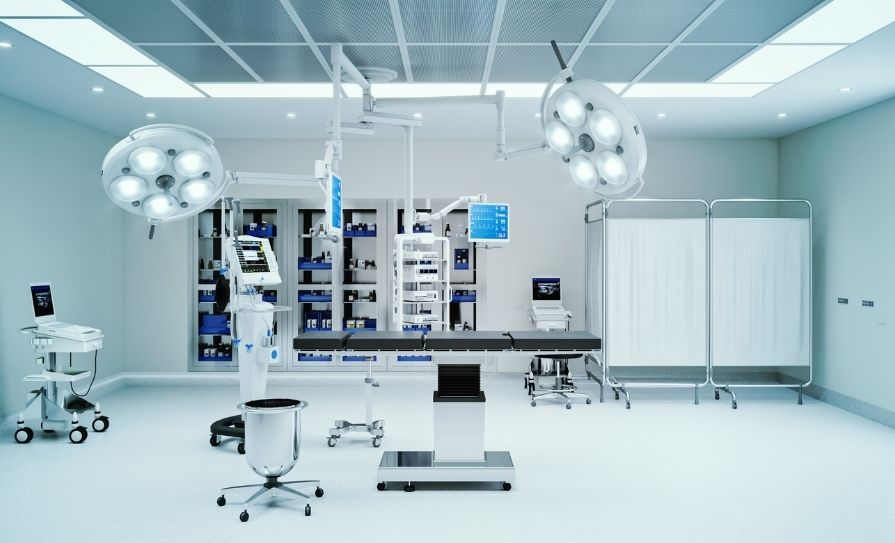We all think we know what professionalism means, even if it can mean many things. It can mean working to a high standard and maintaining expertise. It can mean adhering to a moral and ethical code. It can mean treating other people with respect. Many people, when they go to work, aim, at the very least, to act in a professional manner. But professional values can easily be lost or forgotten in busy workplace environments. In healthcare, for example, the pressure to deliver care can take precedence over just how that care is delivered.
With this in mind, a major conference at the RCSI, featuring national and international speakers, was recently held on the link between professionalism in healthcare and patient and clinician safety. It was the first conference of its kind in Ireland. Speakers at the conference included: world leader in the field Prof Jo Shapiro, Consultant Otolaryngologist and Director of the Centre for Professionalism and Peer Support, Brigham and Women’s Hospital, Harvard, US; Sir Robert Francis, Barrister and Chair of the Mid-Staffordshire NHS Foundation Trust Public Inquiry in the UK; and Dr Pieter Barnhoorn, GP, Lecturer in Family Medicine and member of the Professional Behaviour Board, Leiden University, Netherlands.
<img src=”../attachments/d83e839c-3a6a-44f1-94fc-e3fe7fb1eaf6.JPG” alt=”” />
<strong>Speaker Prof Jo Shapiro</strong>
Also speaking was Prof Dubhfeasa Slattery, who organised the conference. In another first, Prof Slattery was appointed Chair of Medical Professionalism at the RCSI — the only such post in an Irish medical school — in August 2017.
Speaking to the <strong><em>Medical Independent</em></strong> (<strong><em>MI</em></strong>) after the event, Prof Slattery said the conference came at an important time for healthcare in this country. It is a time when talk of physician burnout is common. The consequences of burnout not only have an impact on the physician, or healthcare professional in question, but on the patients they treat, she outlined.
<h3 class=”subheadMIstyles”>Pressure</h3>
“Because everybody is under pressure — there is time pressure, resources are being pulled in every direction, they are burned out — the whole compassion and caring and keeping the patient at the centre of everything becomes more difficult,” Prof Slattery said.
“That is sometimes lost a little. If you have a nurse or doctor who is working 12 hours in an emergency department (ED) with insufficient resources and staffing, they are just sometimes stamping-out fires and they may not be as caring or give that extra time to the patient and have that small interaction with them. That small interaction is critical if you are waiting in an ED for 18 hours. It is not that it is done intentionally; it is that everyone has their limit.
“But patient care needs to be at the centre of everything we do. And we need to remember that money isn’t for A, B and C; it is for the patient. This is critical because what they have shown is that if you have healthcare staff who are burned-out, they then can’t deliver compassionate care to patients.”
In a hospital, Prof Slattery said that professionalism relates to patient safety, clinical risk, open disclosure and good communication. She pointed to the Joint Commission in the US, which 10 years ago analysed major adverse events in hospitals and found that communication failures were the root cause in over 60 per cent of cases.
“There are lots of studies that say if teams communicate better, the outcome of surgery is better, they get fewer complications; there are fewer deaths with teams, surgical teams, that communicate better,” Prof Slattery said.
“They have shown better [patient] outcomes from acute heart attack for surgical teams that communicate better, that trust each other, that are sharing information. Remember that our nursing schools train separately from medical schools, which train separately to our physios, to our pharmacists, but once they get to a hospital situation, they are all expected to magically work together.”
Central to professionalism, as well as better communication, is the concept of trust.
“Professionalism incorporates evidence-based medicine, cultural sensitivity, compassion, selflessness — there is a whole RCSI definition. But the one about trust encapsulates it all.”
Open disclosure, which is of particular significance following the CervicalCheck controversy, can be a way of helping foster this trust.
“That when you talk to a patient when something goes wrong, you are very clear: ‘We messed up here, this is wrong, we will find out why it went wrong and put in systems to prevent it happening again’.”
Prof Slattery is currently developing a curriculum on professionalism for undergraduate students. The curriculum, which will be introduced in September, will be for first-year students all the way through until final year. She stressed it is vital that medical students become acquainted with the concept of professionalism as early as possible, pointing out that studying medicine is different than other college courses.
<img src=”../attachments/e9c0c00e-683a-41bc-bf01-efff49fbdaa1.JPG” alt=”” />
<strong>Pictured L to R at Ireland’s inaugural conference on medical</strong><strong> professionalism, held at the RCSI: Prof Hannah McGee, Dean,</strong><strong> Faculty of Medicine and Health Sciences, RCSI; Prof Cathal Kelly,</strong><strong> CEO/Registrar, RCSI; and Prof Dubhfeasa Slattery, Chair of Medical</strong><strong> Professionalism at the RCSI and Bon Secours Health System</strong>
<strong><br /></strong>
<h3 class=”subheadMIstyles”>‘Huge privilege’</h3>
“Say you are a medical student and you are starting anatomy,” Prof Slattery said.
“You think ‘this is only about dissection’. But it is not, it is about you no longer being a student at school doing a Leaving Cert. You are now basically in charge of someone’s body, which is a huge privilege. You are being allowed to dissect it. You are thinking about the selflessness of the patient who donated, the compassion of the family to share their loved one with you.
“And in a way, you are a surgeon and this is your first patient. And you have to have respect for the body. So you are no longer just a student going in and thinking at times, ‘I won’t bother going to this lecture’. This is a huge privilege that society has given you. As a medical student, you are entitled to look at someone and dissect them. And this has generously been given to you. And a lot of medical schools [around the world] don’t have that. It is all virtual dissection.
“And so, some of the students see that cadaver as their first patient. We call that ‘professional identity formation’. It is a big transition. There are different transitions. You are a little different from another student. You have this privilege. You have been given this by society. And there is a duty to society. And there is a respect there and they need to carry that with them and know how lucky they are and give back to society in the same way that society has given to them. So they are learning anatomy, but they are also learning how to be a doctor.”
A programme in professionalism has also been implemented across the Bon Secours Hospital Group, which is also led by Prof Slattery. The programme is inter-disciplinary, meaning it is relevant for all hospital staff, not only doctors and nurses. This inter-disciplinary aspect is what distinguishes the model from the one used in Harvard, which it is based upon, as well as the fact that it will combine with the undergraduate curriculum. However, the Harvard programme is compulsory, while the Bon’s programme is not.
<h3 class=”subheadMIstyles”>‘Tricky situations’</h3>
“We are opening to everyone, Harvard is only opening it to doctors and nurse practitioners and more senior people,” according to Prof Slattery.
“And we would be going through clinical scenarios, tricky situations regarding professionalism — if your colleague is misbehaving or if you have a disrespectful patient — how do you deal with these scenarios, and training staff in the best way to deal with them.”
Collaboration with Harvard and the Mayo Clinic ensures the programme avails of the best of current thinking in the area, according to Prof Slattery, who added that the data produced by the professionalism programme offers a baseline in Ireland that can then be compared with other hospital groups.
A two-day course on professionalism for healthcare leaders will also be taking place on 24 and 25 May in the RCSI and Prof Slattery said the conference is planned to become an annual event. It is hoped these initiatives will ensure that the concept of professionalism is further embedded into the healthcare landscape.












Leave a Reply
You must be logged in to post a comment.